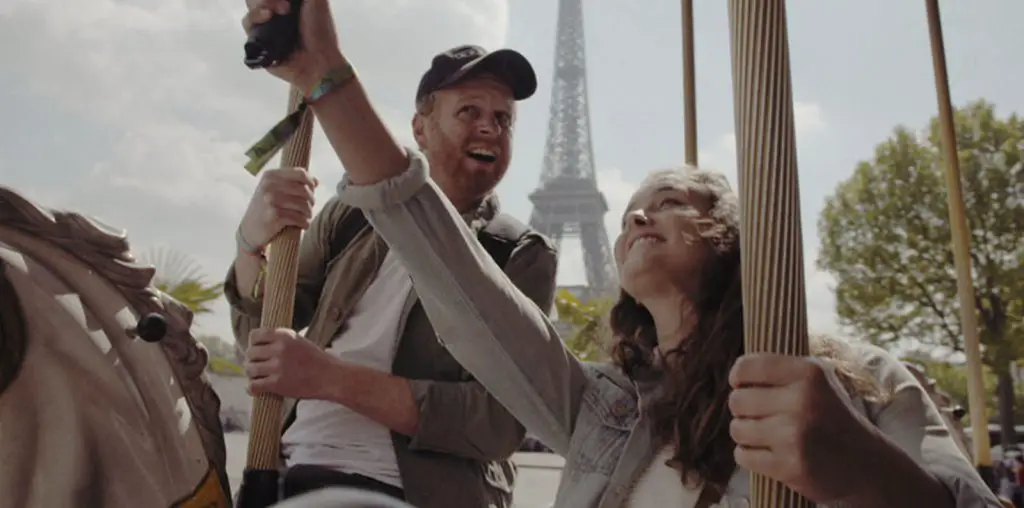
Two films about fatherhood by veteran directors played the Cannes Film Festival on Tuesday and cemented this year’s selection as the best since 2002. Jim Jarmush’s “Broken Flowers” and Jean-Pierre and Luc Dardenne’s “L’Enfant” (“The Child”) both offer thoughtful portrayals of incomplete parenting and both couldn’t have been made by other directors.
Jarmusch has made one of his best films with quiet and often humorous observations of humanity following the life of Don Johnston (“with a ‘T’”), played by the great Bill Murray as an aged Don Juan whose younger girlfriend (Julie Delpy) leaves him at the same moment he receives an unsigned pink letter telling him that the 19-year-old son he never knew about may come looking for him. The search for more information results in a trip through his life that examines the many different forms and locations of American life as each visit with one of his potential son’s potential mother varies wildly from the others.
An impressive roster of actresses dive into their roles in the ensuing vignettes, as Don finds a different reaction from each figure from his past. Sharon Stone plays a race car driver’s widow who hasn’t lost her sexuality, and managed to pass it down to her daughter Lolita (Alexis Dziena), who has certainly taken to her name (at one point she offers to get some popsicles). The other women’s lifestyles are just as interesting: Frances Conroy as a hippy-turned-real-estate-agent who works as a team with her husband, Tilda Swinton’s character’s life in the run-down sticks, an “animal communicator” played by Jessica Lange.
Bill Murray brings the same delicacy he brought to his performance in “Lost in Translation,” reflecting a certain regret at this missing part of his life while maintaining his skill as a comedic actor, particularly during a scene in which he eats some of an unappealing meal at the real-estate agents’ house. He feeds off each of the actresses, and also has amazing chemistry with Jeffrey Wright as Winston, Don’s Ethiopian friend and neighbor who has been looking up how to become a detective on the Internet, and takes it upon himself to solve the mystery of who sent the letter. He tracks down the current locations of the potential parents and builds Don a dossier using Mapquest.
Jarmusch’s understated and droll observations touch on surrealism and farce while holding a muted poignancy. Murray’s presence and the film’s relatively faster (by Jarmush standards) pace have been accused of being too commercial. But while they may give this film a larger audience than Jarmusch’s past work, fans will still recognize the director’s unmistakable presence.
There’s no mistaking a film by the Dardenne brothers, either. The Belgian filmmakers won the Palme d’Or with “Rosetta” six years ago and brought the even better “Le Fils” (“The Son”) to the festival in 2002. WIth “L’Enfant,” they have created another simply told yet amazingly moving film dealing with fatherhood, mistakes, and the search for redemption. Made with their trademark use of source sound and handheld cameras (although with a bit less movement than their work that some said caused vertigo), the film begins with a young woman named Sonia carrying her newborn baby and looking for a man named Bruno. He has apparently sublet her apartment, and she looks for him along the different streets and under bridges until she finds him begging money from cars.
Bruno is the baby’s father, and is happy to see his girlfriend, but has no desire to change his life in favor of making a steady living, and has no real grasp on his familial responsibilities. Even when he manages to obtain some money through theft, he blows 200 euros to rent a convertible instead of saving money. Bruno and Sonia still have the playful magic of young love around them, but it’s clear than Sonia is much more serious about parenting than the carefree father.
The setup leads to a long, heartbreaking sequence whose consequences are beyond Bruno’s comprehension, but clear to anyone thinking beyond daily begging. He can’t see past his simple routine because has never had anything in his life that means as much as this young life. The rest of the film deals with these actions realistically, without contrived melodramatic moments, and is surprising and touching in its understated honesty. As in “The Son,” we meet with a powerful and emotional conclusion to the events, which are intellectually and emotionally grounded where most films would be too strained and didactic.
Film Threat’s 2005 Cannes Film Festival coverage continues throughout the week!
Check out Jeremy’s previous report>>>
Visit the Cannes Film Festival website.
